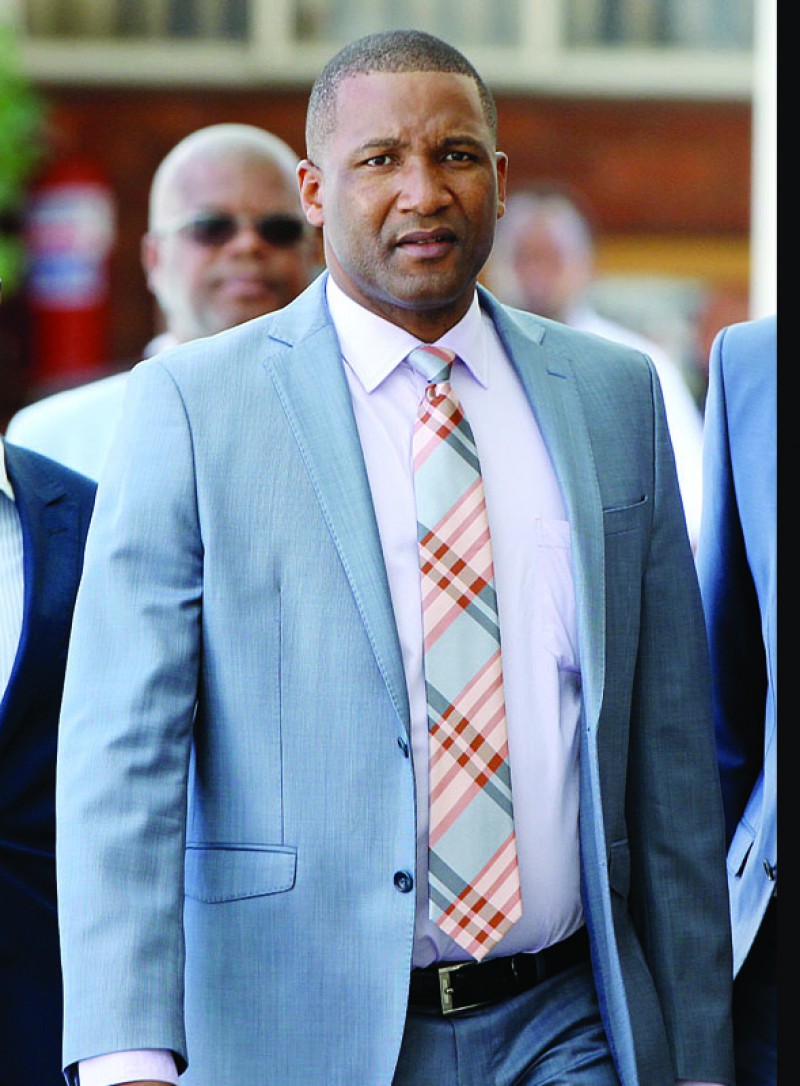Funding fails poor, costly education: UDC�s Boko
Baboki Kayawe | Friday February 5, 2016 16:38


Leader of Opposition, who is also UDC president, Duma Boko told Parliament this week that under his regime, education would be restored to its liberation role and regain utility.
Boko was responding to Minister of Finance and Development Planning, Kenneth Matambo’s Monday budget presentation.
Delivering the Budget Speech, Matambo allocated the lion’s share of the recurrent budget to the Ministry of Education and Skills Development (MoESD) at P10.64 billion accounting for 29 percent of the total.
The bulk of the ministry’s 2016-2017 budget would go towards the implementation of the Education and Training Sector Strategic Plan (ETSSP) launched last year. However, Boko was pessimistic as to whether the strategy, “yet to be costed and implemented” would redeem the education system.
Through this initiative government “is committed to ensure that issues of quality of education and skills mismatch are addressed”.
The strategy also intends to reform and make Vocational Education and Training attractive to learners.
Matambo explained: “This substantial budget caters for, among others, teaching services’ wage bill, post- secondary bursaries, and subventions to University of Botswana and other government-funded tertiary institutions, increased enrolment for the Botswana International University of Science and Technology”.
The Department of Tertiary Education Financing (DTEF) has been awarded P2.1 billion just slightly under that of 2015-2016, which was P2.3 billion. The Department of Teaching Service Management got P4.5 billion relative to the previous financial period’s P4.2 billion. It is under this department where services like training such as in-service training happens though teachers’ unions have decried negligence for some time now.
According to the draft, 2016-2017 Estimates of Expenditure from the Consolidated and Development Funds, this area had an actual expenditure until March 2015 was P299, while a mere P10 was authorised for this service in the period 2015-2016, a trend that prevails in the 2016-2017 financial period.
Reacting to the 2015 Form Three results, Botswana Sectors of Educators’ Trade Union secretary general, Tobokani Rari said it is paramount to note that the dynamics of the teaching profession is such that the teaching content and methodologies keep on changing and as such there is a dire need for teachers to be upgraded and upskilled.
Therefore, Rari said any government that endeavours to have an efficient and effective teaching service needs to have due regard for an in-service policy aimed at upgrading, upskilling and retooling its serving crop of teachers.
“The teaching methodologies change and so is the syllabus content. Our view is that government is concentrating more on inspectorate to the negligence and detriment of in-service training,’ he said.
Nonetheless, education has had an uninterrupted dominance of the budget. Between 2010 and 2015, the ministry allocated P42 billion out of recurrent budgets jointly estimated at P163 billion. In fact, every budget since independence has generously pumped funds into education, under the nobel mantra: ‘Education is the key to life’.
Not so, not anymore, and not in Botswana, according to Boko. “Except for a few who inherited prestige and privilege, most Batswana come from humble backgrounds. Education used to enable them to overcome poverty. This sadly, is no longer the case,” Boko said.
“The funding that has gone into education has failed and failed miserably to improve the quality of our education at all levels,” he said.
He added that the country needed properly equipped schools, and schools that teach.
“The unstinted millions that we have poured into education have gone to fund a bloated bureaucracy and failed to transform the classroom and the learning environment positively,” he said. He charged the more “we have increased funding the worse the results have become”.
Boko said the country could not be developed in the absence of a great public education system.
“It comes as no wonder then that none of my colleagues on the opposite side of the aisle send their children to public schools. It is a searing indictment of your education system,” he said.
Under Boko’s rule this will be a thing of the past. He said the UDC would review the working conditions of teachers, repair the “damaged relationship between government and the teacher unions to foster a partnership that is conducive to the best learning environment for our children”. Moreover, he said learning would be techno-centric and digitalised.
“Based on our firm realisation of the centrality of information technology to learning, the UDC pledges and undertakes to provide a laptop or tablet to every senior secondary school student as a starting point,” he said.
Those would be provided to public schools, and the intent is to employ technology to release young people’s full potential and cement them in the unfolding digital world. “We reject the impression being aggressively cultivated and reinforced that children in the regions stretching from the southern tip of Kgalagadi to the northern tip of the Okavango are poor performers,” he said, adding that, “It is the underinvestment and capital misallocation of the current government that have condemned the children of these areas to a life and future of hopelessness.” Boko says the UDC rule would usher a ‘just and equitable intervention’ that would ultimately improve national unity and cohesion.
